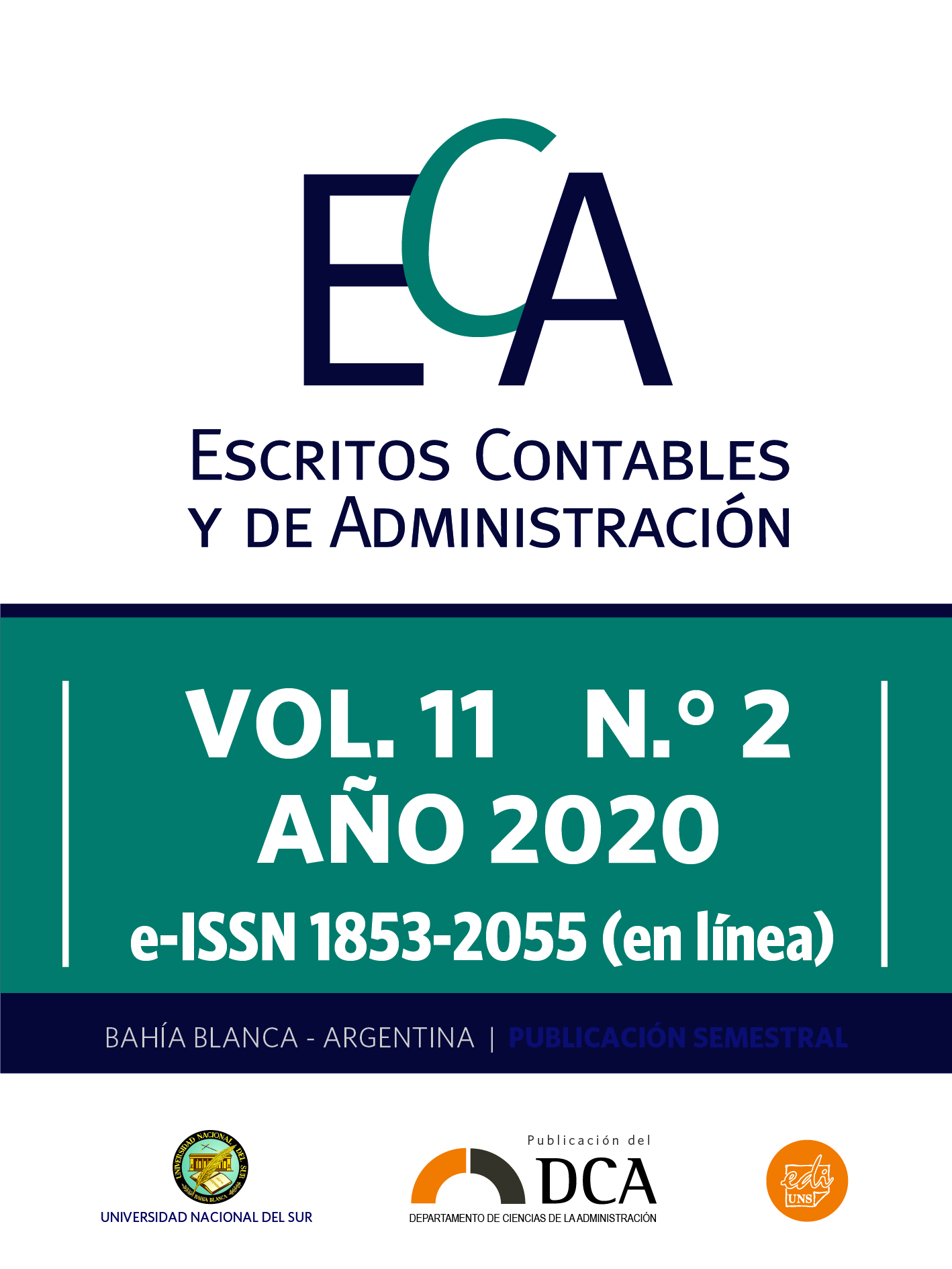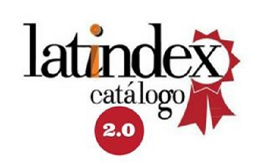La información financiera de empresas argentinas ante la COVID-19: un análisis de las revelaciones y el cumplimiento normativo
DOI:
https://doi.org/10.52292/j.eca.2020.2033Palabras clave:
información contable, estados financieros, hechos posteriores, coronavirus, ArgentinaResumen
Las decisiones estratégicas, tácticas y operativas deben basarse en información de calidad. Relevancia y representación fiel son características cualitativas fundamentales para que la información financiera pueda ser de utilidad. Este trabajo tiene por objetivo realizar un abordaje teórico y analizar empíricamente si las empresas argentinas revelan cuestiones vinculadas a la COVID-19, cumpliendo lo requerido por las normas contables y regulatorias. Para ello, se realiza una investigación de tipo aplicada y exploratoria, y se elabora una metodología de relevamiento de información relacionada con el coronavirus en los estados financieros, el cumplimiento con los organismos de control y la repercusión en el mercado de valores. Se encuentran importantes deficiencias en la aplicación de la regulación existente, lo que impacta de manera negativa en la calidad y utilidad de la información. Ante este escenario, se hace indispensable revisar los supuestos teóricos que deben guiar las tareas de preparación y revisión de la información contable.
Descargas
Citas
Abarbanell, J. & Bushee, B. (1997). Fundamental Analysis, Future Earnings. and Stock Prices. Journal of Accounting Research, 35(1), 1-24. https://doi.org/10.2307/2491464
Alzúa, M. L. & Gosis P. (2020). Impacto socio-económico del Covid-19 y opciones de política en Argentina. Serie de Documentos de Política Pública N6, Nueva York: PNUD, RBLAC. https://www.latinamerica.undp.org
American Accounting Association. Committee to Prepare a Statement of Basic Accounting Theory. (1966). A statement of basic accounting theory. American Accounting Association.
Comisión Nacional de Valores (2013). Normas CNV – Texto Ordenado 2013. https://www.cnv.gov.ar/descargas/MarcoRegulatorio/blob/499EC64A-E522-49D2-8F49-D9624B6DC49B
Fowler Newton, E. (2016). Contabilidad superior (7.a edición). Buenos Aires: La Ley.
Giner Inchausti, B., Reverte Maya, C. & Arce Gisbert, M. (2002). El papel del análisis fundamental en la investigación del mercado de capitales: análisis crítico de su evolución. Spanish Journal of Finance and Accounting / Revista Española de Financiación y Contabilidad, 31(114), 1111-1150. https://doi.org/10.1080/02102412.2002.10779470
Hendriksen, E. S. (1977). Accounting theory. Homewood, IllinoisCiudad: McGraw-Hill/Irwin.
IASB (2020a). El Marco Conceptual para la Información Financiera. http://eifrs.ifrs.org/eifrs/bnstandards/es/2020/framework.pdf
IASB (2020b). NIC 10 – Hechos ocurridos después del periodo sobre el que se informa. http://eifrs.ifrs.org/eifrs/bnstandards/es/2020/IAS10.pdf
Jensen, M. C. & Meckling, W. H. (1979) Theory of the Firm: Managerial Behavior, Agency Costs, and Ownership Structure. En Brunner K. (ed.), Economics Social Institutions. Rochester Studies in Economics and Policy Issues, vol. 1. Springer, Dordrecht. https://doi.org/10.1007/978-94-009-9257-3_8
McKibbin, W. J. & Fernando, R. (2020). The global macroeconomic impacts of COVID-19: Seven scenarios. http://dx.doi.org/10.2139/ssrn.3547729
Naciones Unidades Argentina. (2020). Análisis inicial de las Naciones Unidas: Covid-19 en Argentina: Impacto socioeconómico y ambiental. https://www.onu.org.ar/stuff/Informe-COVID-19-Argentina.pdf
Ohlson, J. A. (1995). Earnings, book values, and dividends in equity valuation. Contemporary accounting research, 11(2), 661-687. https://doi.org/10.1111/j.1911-3846.1995.tb00461.x
Penman, S. H. (1992). Return to fundamentals. Journal of Accounting, Auditing & Finance, 7(4), 465-483. https://doi.org/10.1177/0148558X9200700403
Rappaport, A. (2006). La creación de valor para el accionista: una guía para inversores y directivos. Barcelona: Deusto.
Remolina, N. (2020). Respuestas de Supervisores y Reguladores Financieros al COVID-19 (Financial Regulators’ Responses to COVID/19). http://dx.doi.org/10.2139/ssrn.3554557
Sacer, I. M., Malis, S. S. & Pavic, I. (2016). The Impact of Accounting Estimates on Financial Position and Business Performance–Case of Non-Current Intangible and Tangible Assets. Procedia Economics and Finance, 39, 399-411. https://doi.org/10.1016/S2212-5671(16)30341-0
Shroff, P. K. (1999). The variability of earnings and non‐earnings information and earnings prediction. Journal of business finance & accounting, 26(7‐8), 863-882.https://doi.org/10.1111/1468-5957.00278
Tua Pereda, J. (1991). La Investigación empírica en contabilidad. Los enfoques en presencia. Revista Española de Financiación y Contabilidad, 7-82. https://www.jstor.org/stable/42780079
Publicado
Cómo citar
Número
Sección
Licencia
Aviso de derechos de autor
Aquellos autores/as que tengan publicaciones con esta revista, aceptan los términos siguientes:
- Los autores/as conservarán sus derechos de autor y garantizarán a la revista el derecho de primera publicación de su obra, el cual estará simultáneamente sujeto a la licencia Atribución-No Comercial 4.0 Internacional CC BY-NC 4.0.
- Los autores/as podrán adoptar otros acuerdos de licencia no exclusiva de distribución de la versión de la obra publicada (p. ej.: depositarla en un archivo telemático institucional o publicarla en un volumen monográfico) siempre que se indique la publicación inicial en esta revista.
- Se permite y recomienda a los autores/as difundir su obra a través de Internet (por ej.: en páginas web institucionales o personales) una vez publicado su trabajo, lo cual puede producir intercambios interesantes y aumentar las citas de la obra publicada (Véase El efecto del acceso abierto).





















